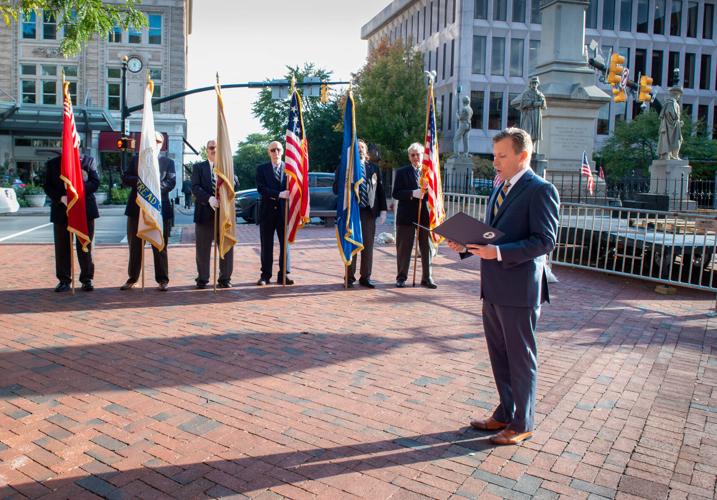Editor's note: This story was originally published Sept. 27, 2018.
On Sept. 27, 1777, Lancaster served as the capital of the United States. The previous day, British troops had occupied Philadelphia. They had been steadily moving on the colonial capital since winning the Battle of Brandywine Creek near Chadd's Ford 16 days earlier.
In the aftermath of that fight, in which an estimated 1,100 patriots were either killed, wounded or captured, the Continental Congress fled Philadelphia. Because Gen. William Howe's troops were flanked northwest of Philadelphia, Congress was forced to flee across the Delaware River to New Jersey before taking a circuitous route to Lancaster where it rested for a day before moving the capital to York.
Click here to read more Lancaster County history from LancasterOnline.
These were the members of the Second Continental Congress — the one that defied King George by signing the Declaration of Independence and voting to take up arms against the British. Each had a bounty on his head.
As Benjamin Franklin reminded the members at the signing of the Declaration of Independence, “We must all hang together, or assuredly we shall all hang separately.”
The Declaration they signed spelled out specific beliefs — that all men are created equal, that they are endowed with certain inalienable rights and that government derives its powers by the consent of the governed. Those principles were further enshrined in the Constitution that was drawn up 10 years later.




 LINDSEY BLEST | Staff Writer
LINDSEY BLEST | Staff Writer


